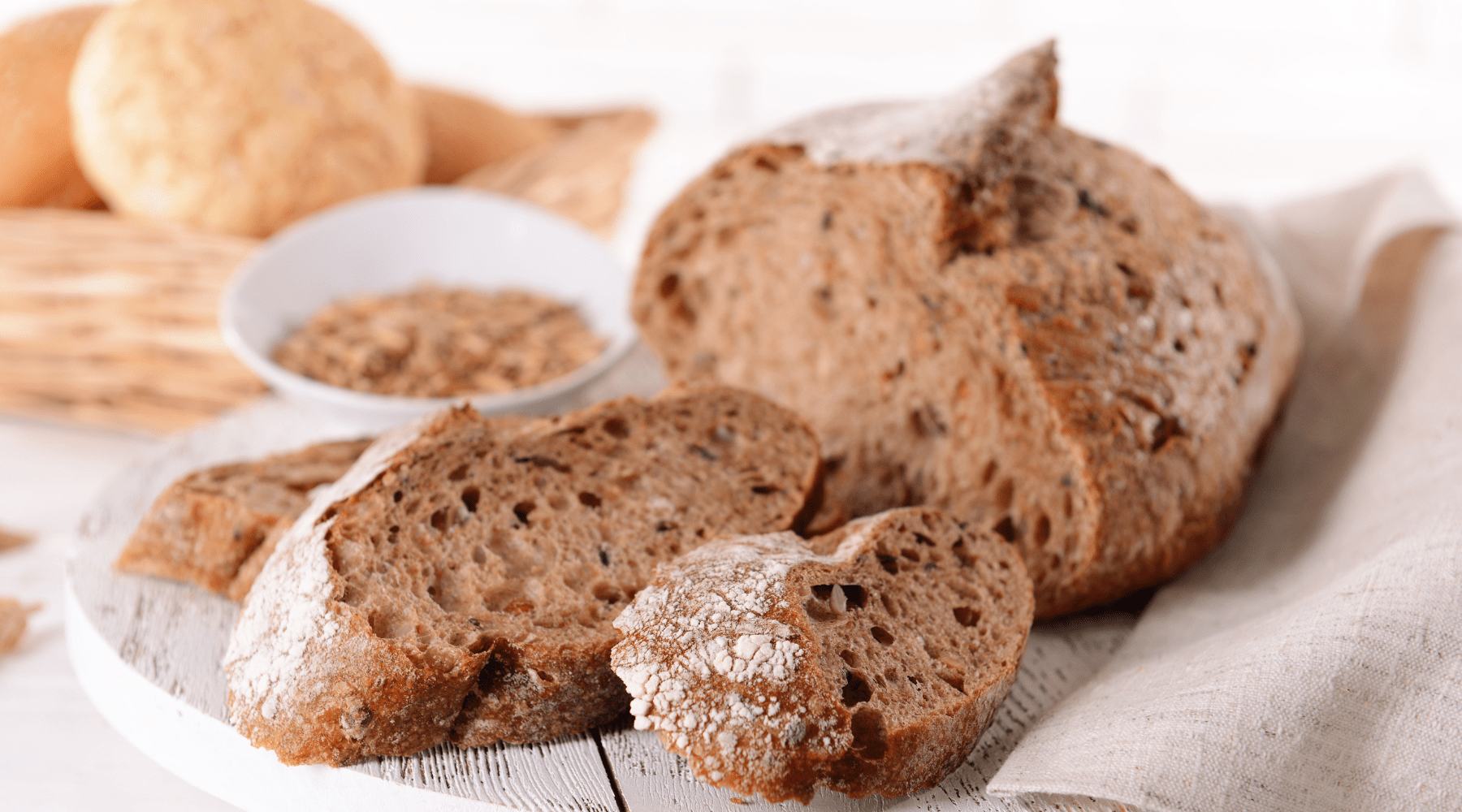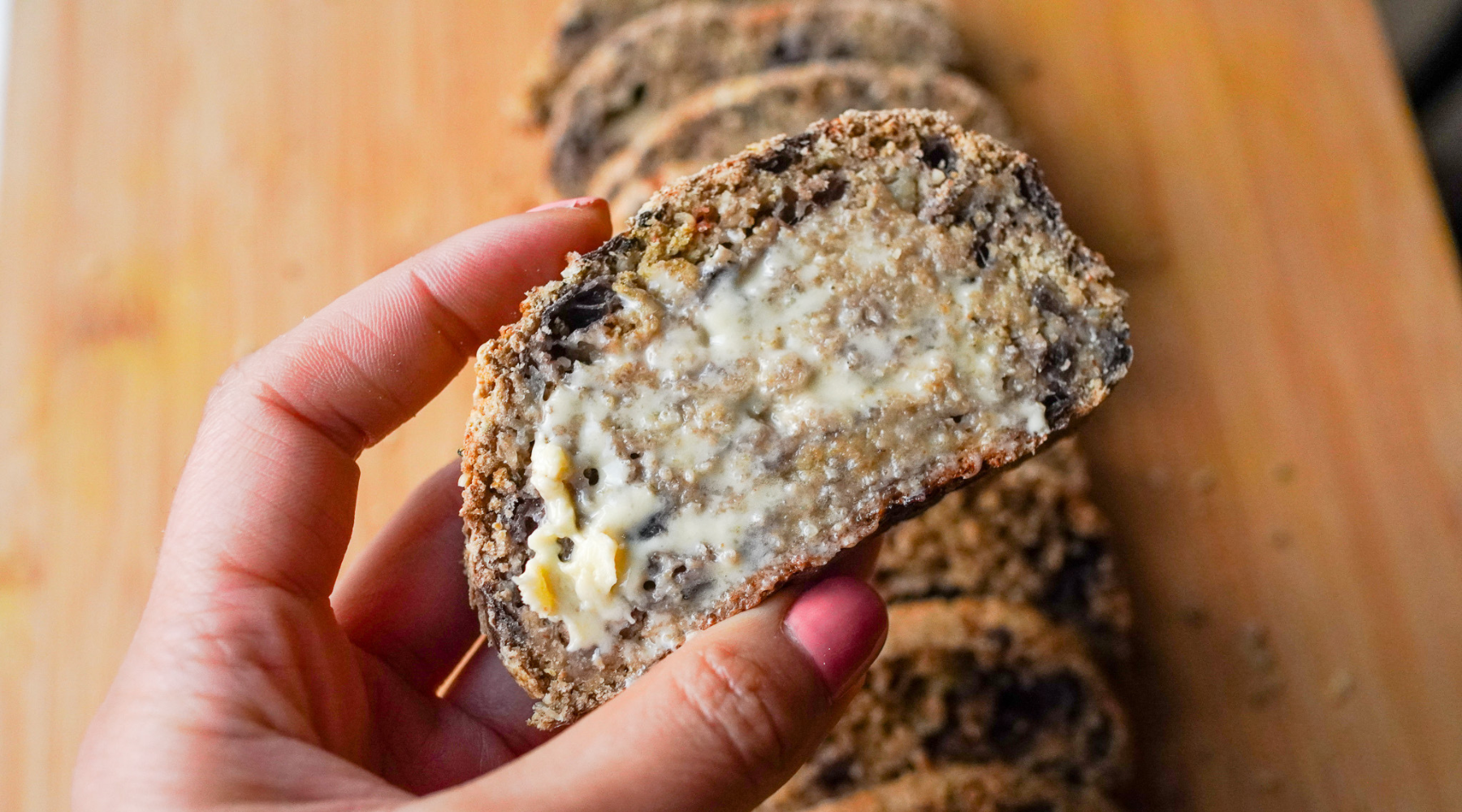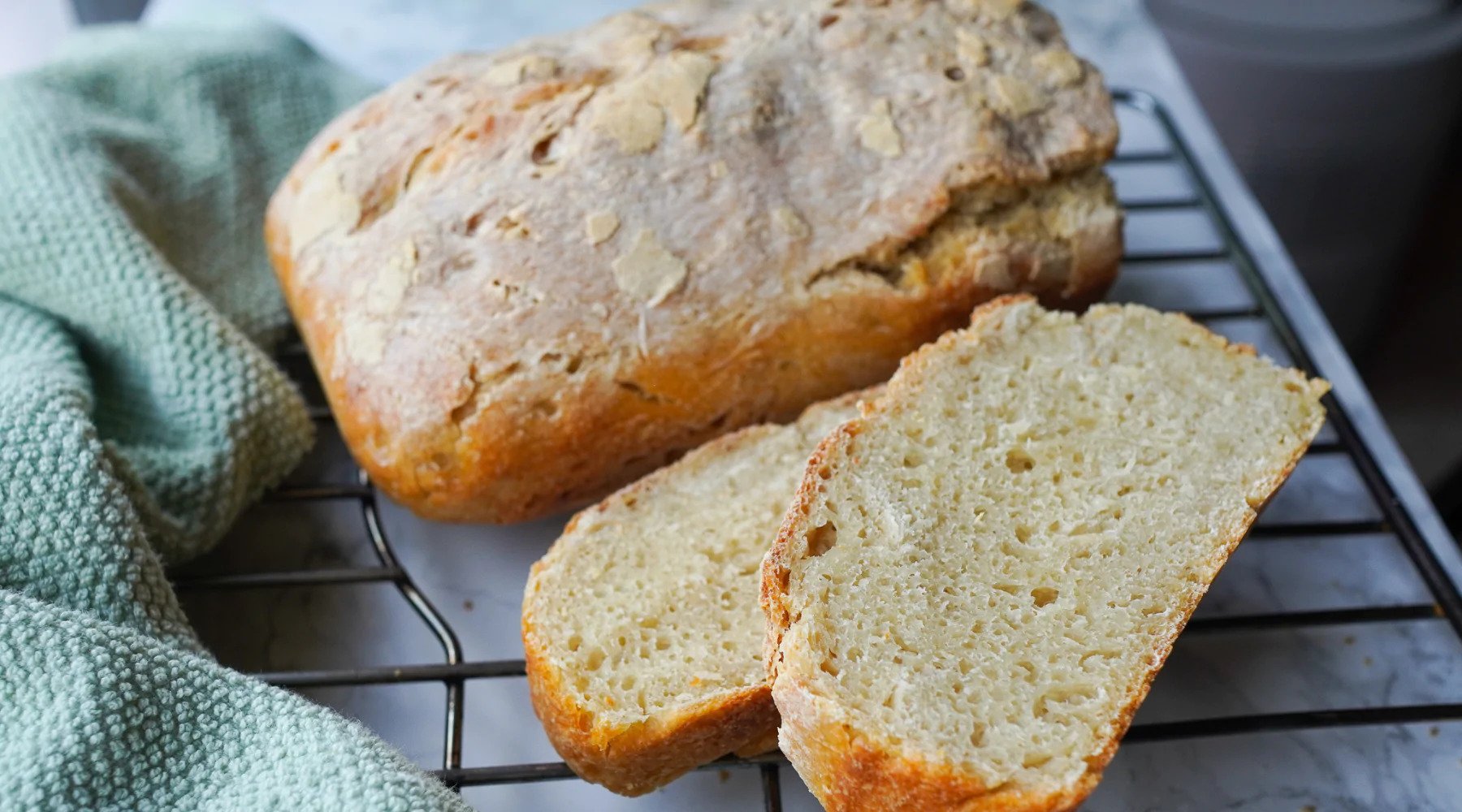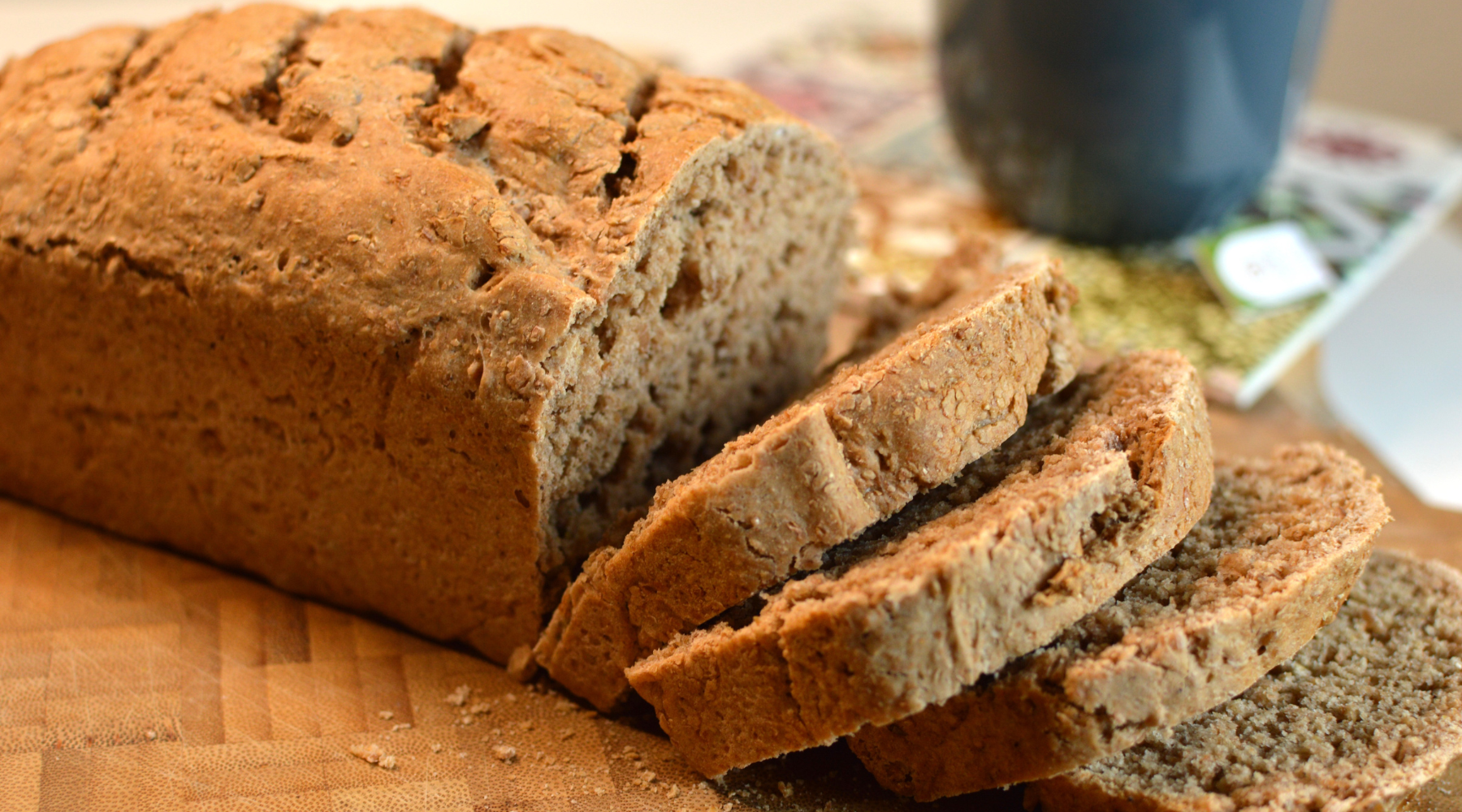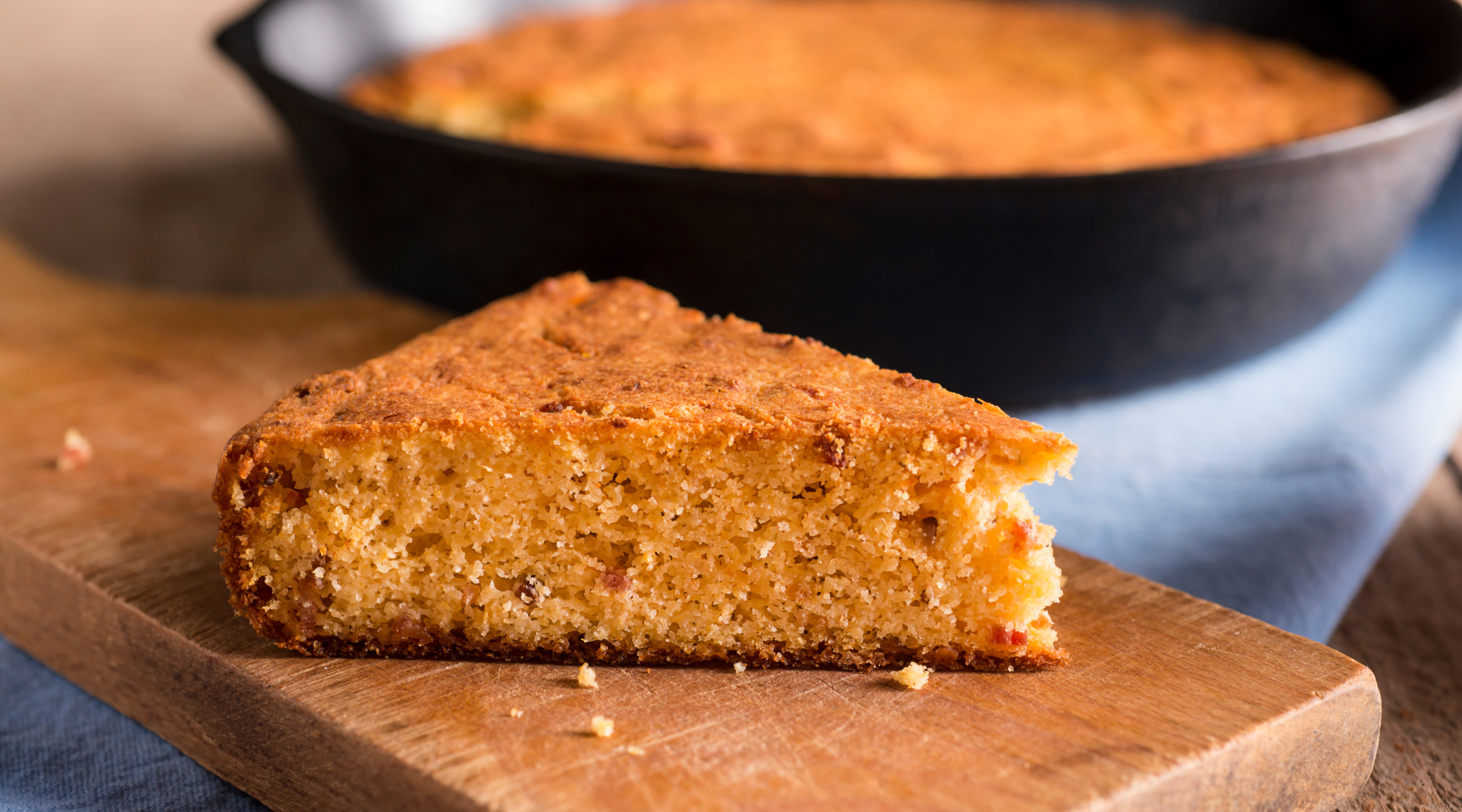If we had to run a poll on choosing between homemade bread and store-bought bread, what would you vote for? We are almost 100% sure homemade would win by a long shot!
Not much beats the taste, satisfaction, and pure bliss of biting into a warm slice of fresh-out-of-the-oven homemade bread. Even more so when topped with oozing butter or a thick slick of your favorite marmalade!
There's something nostalgic and gratifying about a fresh loaf, especially homemade. It becomes a culinary experience that is worth the effort!
Yet, many of us miss out on this fantastic experience every day. And for most of us, bread is bread. Whether it comes from a store, a bakery, or is homemade - we don't know the difference, often don't really care, or just don't have the time and energy to make our own.
Unfortunately, as technology evolves and due to the massive demand, manufacturers are adulterating our bread. I might be great for their pockets, but not so much for our health...
Scroll down to learn more about store-bought vs. homemade bread and why you should consider making the switch!
HOMEMADE BREAD VS. STORE-BOUGHT
Have you ever actually taken a closer look at the ingredients in store-bought bread?
The next time you buy bread, do yourself a favor and flip your favorite bread over to read the back.
You'll be shocked to find emulsifiers, preservatives, and many other ingredients that really shouldn't be in bread.
Bread often gets a bad rap due to "bad" carbs, being a high GI (glycemic index) food, and being processed. Which, in some instances, especially for store-bought bread, is true.
But the reality is that grains are more difficult to digest due to added ingredients, chemical processes, and genetically modified wheat crops. All contributing to health problems, including wheat intolerance, digestive troubles, weight gain, and diabetes.
Artificial fertilizers, pesticides, high-yielding wheat varieties, preservatives, and enzymes are used by wheat farmers and pushed by industrial bread companies to meet the massive consumer demand and keep bread fresher for longer.
All these extras and "altercations" are affecting our health in the long run.
Why should we eat ingredients we can't even pronounce? Why not keep it as natural as possible?
Is it time you ditched store-bought bread and started making your own, being in total control of the ingredients and your health?
You might just do that when you learn about the significant advantages of choosing homemade bread over store-bought bread below!
-v1722859163887.jpg?800x1885)
WHY IS HOMEMADE BREAD BETTER THAN STORE-BOUGHT?
IT TASTES WAY BETTER!
------Maybe you are on team store-bought, but homemade bread gets our vote all the way! Fresh, hearty, warm, and soft triumphs!
Freshly baked bread, made with pure ingredients, straight out of the oven is one of life's greatest pleasures!
Sure, you can go to your local bakery and get fresh bread daily. But the satisfaction of baking it yourself won't be there, and you'll be paying someone else for something so easy to do yourself.
CONTROL OVER THE INGREDIENTS
------Feeling like garlic and onion bread or something with cheese and herbs? Or maybe something sweet like cinnamon and raisins? No problem!
You are in total control of the flavor and the ingredients.
Choose your favorite flour - whole wheat, oat, rye, or barley flour, instead of standard white flour.
Choose a recipe catering to allergies or diet preferences - avoiding ingredients such as eggs, dairy, or gluten.
Control the amount of sugar used and include toppings such as nuts, seeds, and other natural flavorants to your liking.
NO UNDESIRED INGREDIENTS
------Homemade bread contains no chemicals, artificial additives, preservatives, or enzymes. These are often used in store-bought bread to make them stay fresher for longer and enhance the taste.
You don't have to worry about added sugars in the form of processed fructose corn syrup or dextrose, which are just empty calories.
Store-bought bread is also often higher in sodium and contains more trans fats due to margarine and vegetable shortening. Whereas, in your homemade bread, you can use healthy unsaturated fats such as extra virgin olive oil or grapeseed oil.
JOY & SATISFACTION
------People love making homemade bread because of the enjoyment and satisfaction it brings! Making something yourself or experimenting with a new recipe is exhilarating!
There is something special about kneading the bread with your own hands and watching in anticipation as the dough rises into a perfectly baked loaf.
Mixing ingredients and kneading the dough can also be a great way to release stress, and many find the baking process soothing.
The joy of gifting a baked break to a host or a friend is also quite pleasing and humbling at the same time! Everyone appreciates fresh bread!
REDUCE YOUR WASTE
------Making homemade bread will drastically reduce the packaging and plastic of store-bought bread. Every small action helps!
You may still use plastic to store your homemade bread, but you can use a large reusable Ziploc bag or a glass container to store your bread in!
Speaking of waste….how many of us are guilty of purchasing too much bread or forgetting to refrigerate it, only to have to throw it away when it has gone bad?! With homemade bread, it will probably be gulped up within a few hours! And best of all, you know exactly how old your bread is.
CAN BE MORE COST-EFFECTIVE
------Sure, many bakeries make healthy, organic fresh bread daily. But those come at a higher cost than making it yourself.
You could also argue that electricity and your precious time justify buying store-bought bread, but at what cost to your health or giving up a memorable experience?
So, in the end, the "cost" of store-bought or homemade bread will depend on many things and what you value. It's kind of like comparing apples with oranges, a bit difficult...
However, you can lower the cost of homemade bread by making more than one bread at a time. This will reduce the cost of electricity, gas to buy ingredients, and your time significantly. Any leftovers or excess bread that won't be eaten within the next two days can be frozen or gifted!
HOW TO START MAKING YOUR OWN BREAD
As with all things homemade, making homemade bread takes time and some effort. But the reward is worth it!
Here are a few tips:
- If you are a newly aspiring baker, keep it simple and find a recipe that does not require many ingredients, steps, or a lot of kneading. You'll find endless recipes online when searching for "easy bread recipes" or "no-knead recipes."
- Bread that requires no kneading involves mixing a batch of moist dough and storing it in the fridge for a few weeks. When you are ready to make bread, you will simply take the amount of dough you need, shape it into a loaf, let it rise, and bake!
- If the thought of kneading and baking still stresses you out (or you don't have time), invest in a bread-making machine that will do most of the work for you.
- As you get more experienced and confident, move on to exciting, interesting recipes to expand your impressive bread-making skills! The options are limitless!
-v1666092346324.png?1440x2000)
TRY THESE HOMEMADE BREAD RECIPES
Q&A's On Homemade Bread
-v1722944013091.png?756x4913)
Can Homemade Bread Be Frozen?
Yes, homemade bread can be frozen, and it's a great way to preserve its freshness. Here are some tips for freezing and thawing homemade bread:
Freezing Homemade Bread
- Cool Completely: Ensure the bread is completely cool before freezing. Warm bread can create condensation, which can lead to freezer burn.
- Slice Before Freezing: If you plan to use only a few slices at a time, slice the bread before freezing. This way, you can take out only what you need without thawing the entire loaf.
- Wrap Properly: Wrap the bread tightly in plastic wrap or aluminum foil. For extra protection, place the wrapped bread in a freezer-safe plastic bag or an airtight container to prevent freezer burn and to maintain freshness.
- Label and Date: Write the date on the packaging so you can keep track of how long it has been in the freezer. Bread can generally be frozen for up to three months.
Thawing Homemade Bread
- Room Temperature: Remove the bread from the freezer and let it thaw at room temperature while still wrapped. This helps retain moisture. It should take a few hours to thaw completely.
- Oven: If you want to enjoy warm bread, you can thaw it in the oven. Preheat your oven to 350°F (175°C), remove the bread from its wrapping, and place it on the middle rack for 10-15 minutes.
- Toaster: For sliced bread, you can toast the slices straight from the freezer.
How To Store Homemade Bread
Here are some tips to help you store homemade bread effectively:
- Bread Box: Bread boxes help maintain the right balance of humidity and air circulation to keep the crust crisp and the interior soft.
- Paper Bag: If you don't have a bread box, a paper bag can also work well. It allows some airflow while keeping the bread from drying out too quickly.
- Kitchen Towel: Wrap the bread in a clean kitchen towel to help absorb excess moisture and prevent the bread from becoming soggy.
- Reusable Bread Bag: Use a reusable bread bag made of breathable fabric.
- Avoid Refrigeration: Storing bread in the refrigerator can actually make it go stale faster due to the cool temperatures causing the starches to recrystallize.
- Store at Room Temperature: Keep the bread in a cool, dry place away from direct sunlight and heat sources.
What is the nutritional value of homemade bread?
The nutritional value of homemade bread can vary depending on the ingredients and the size of the loaf or slices.
Average Nutritional Value per Slice (28g) of Homemade White Bread
- Calories: 70–80 kcal
- Protein: 2–3 grams
- Carbohydrates: 12–15 grams
- Sugars: 1–2 grams
- Dietary Fiber: 0.5–1 gram
- Fat: 1–2 grams
- Cholesterol: 0 mg
- Sodium: 100–150 mg
Nutritional Value of Whole Wheat Bread
If you’re using whole wheat flour, the nutritional content will be slightly different due to the higher fiber content:
- Calories: 70–90 kcal
- Protein: 3–4 grams
- Carbohydrates: 12–16 grams
- Sugars: 1–2 grams
- Dietary Fiber: 1.5–2 grams
- Fat: 1–2 grams
- Cholesterol: 0 mg
- Sodium: 100–150 mg
Factors Affecting Nutritional Content
Flour Type: The type of flour used (white, whole wheat, rye, etc.) will significantly impact the nutritional content, especially in terms of fiber and micronutrients.
Additives: Adding ingredients like seeds, nuts, or dried fruits will increase the calorie and nutrient content.
Portion Size: The nutritional values can vary depending on the size and thickness of the slices.
Sugar and Fat Content: Adding more sugar or fats (like butter or oil) can also alter the nutritional profile.

